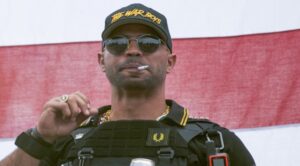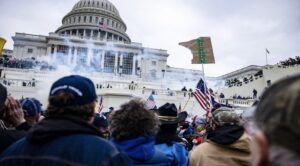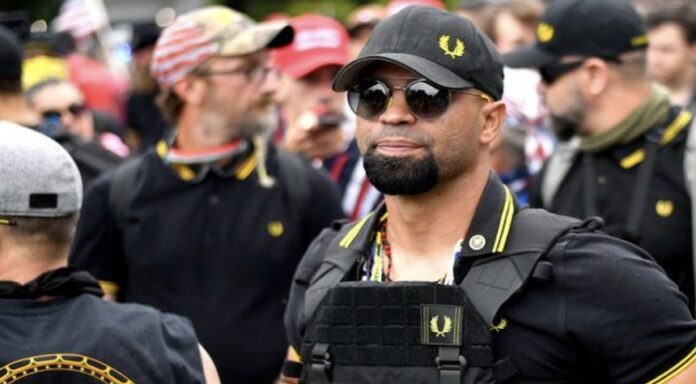A federal judge sentenced Enrique Tarrio, former leader of the Proud Boys, to 22 years behind bars for his role in organizing the riot that took place on January 6, 2021, in the Capitol Building.
Tarrio wasn’t in Washington on that day. Tarrio was in Baltimore, after being arrested for separate charges. Tarrio, however, tweeted support for the riot. He also claimed credit after the event.
The standard sentence for murder in the first degree is 20 years. Why was Tarrio sentenced to 22 years of imprisonment when he was not even present at the actual location of the riots? The sentences of other Proud Boys, Oathkeepers, and others were also long.

The majority of January 6 defendants were given sentences that ranged from a few weeks to a couple of years. This is because they accepted a lesser sentence in exchange for their guilty pleading. The Proud Boys decided to go to court. Prosecutors frown upon the choice to have a jury consisting of peers try you. Preparing for a court trial is hard work, and the result can be unpredictable. Prosecutors use light sentences to deter defendants from going to court.
The “trial punishment” is a grossly unfair and manifestly unfair practice.
C.J. said, “[Prosecutors] received a long sentence for asking something absurd.” Ciaramella spoke yesterday on Reason Roundtable. “In cases where defendants who were charged on January 6 pleaded guilty and expressed remorse to the court, they were more likely to go light on them.”

The prosecution might say that a plea deal is needed because the U.S. Justice system is hopelessly overloaded and there must be an incentive to manage caseloads. The incentive for those who accept a plea agreement is to offer them a lesser sentence than what they would have received if they went to trial.
This system has the problem of giving us a cockeyed perspective of “justice”. In fact, this system disconnects “justice” from the criminal court system. The prosecutors in Tarrio’s case asked for 33-year sentences. Does this mean that justice was not served because Tarrio only got 22 years?
Reason:
Liberal and libertarian organizations have criticized this practice for punishing people for simply exercising their constitutional rights to a jury trial.

According to the American Bar Association, defendants who go to trial receive an average sentence seven years higher than those who plead guilty. The preference of prosecutors for plea bargains sees them add as many charges and stretch the application of vague statutes in order to force defendants into giving up their right to trial.
In the end, those who are convicted of a crime at trial will be sent to prison longer than even prosecutors believe necessary.
Yesterday, FBI Director Christopher Wray said that the sentencing shows those who tried to undermine American democracy would be held criminally responsible. Why did some rioters only get a year? If they undermined the “American democracy,” wouldn’t their punishment also be as severe — or nearly as severe — as that of Proud Boys and Oathkeepers?

Tarrio, and other people who received sentences of more than a decade in prison for their roles on January 6, are not sympathetic figures. The amount of time that they will spend in prison, however, is a result of a penalty for a trial that is widely regarded as unjust. If we oppose these enhanced sentences in the administration of criminal justice in general, then we should also oppose them for the defendants of January 6.
If that was really their intention, the Proud Boys had no chance of changing the outcome of the election or overthrowing the government. Why not make allowances for their utter stupidity and the unlikely chance that their plans would succeed?
These considerations pale in comparison with the extra work that the prosecutor has to do in these cases because the defendants have refused a plea bargain.




